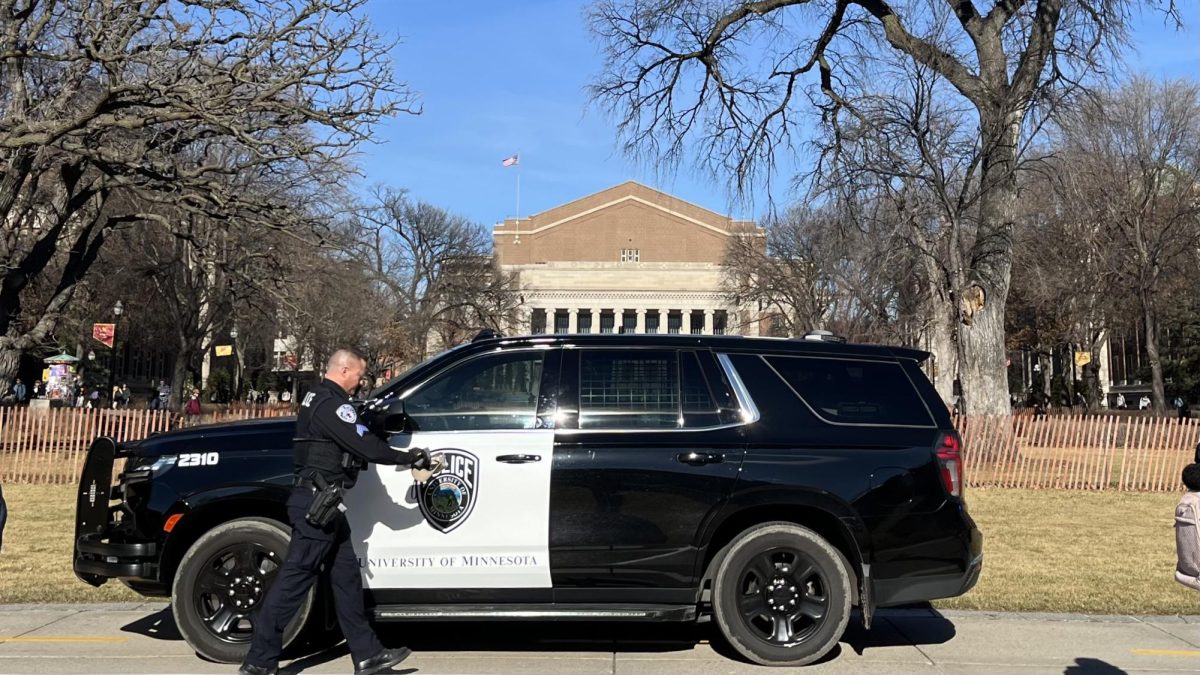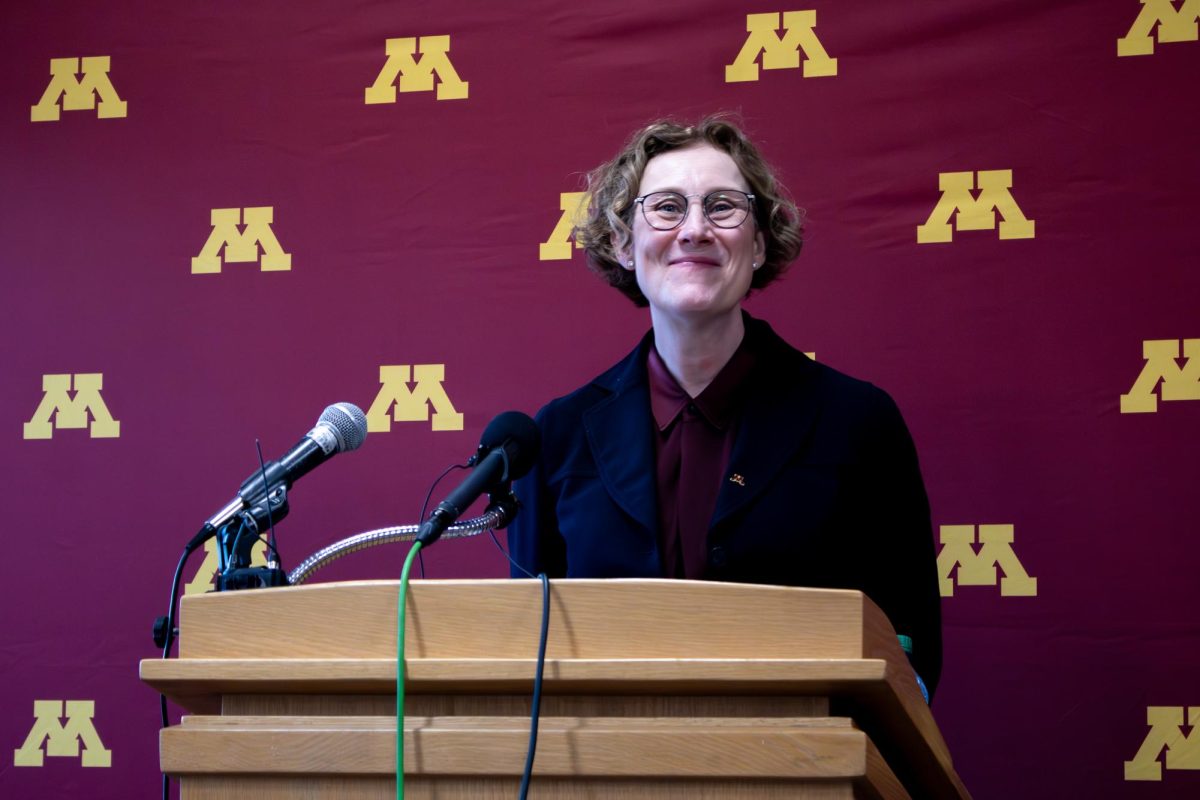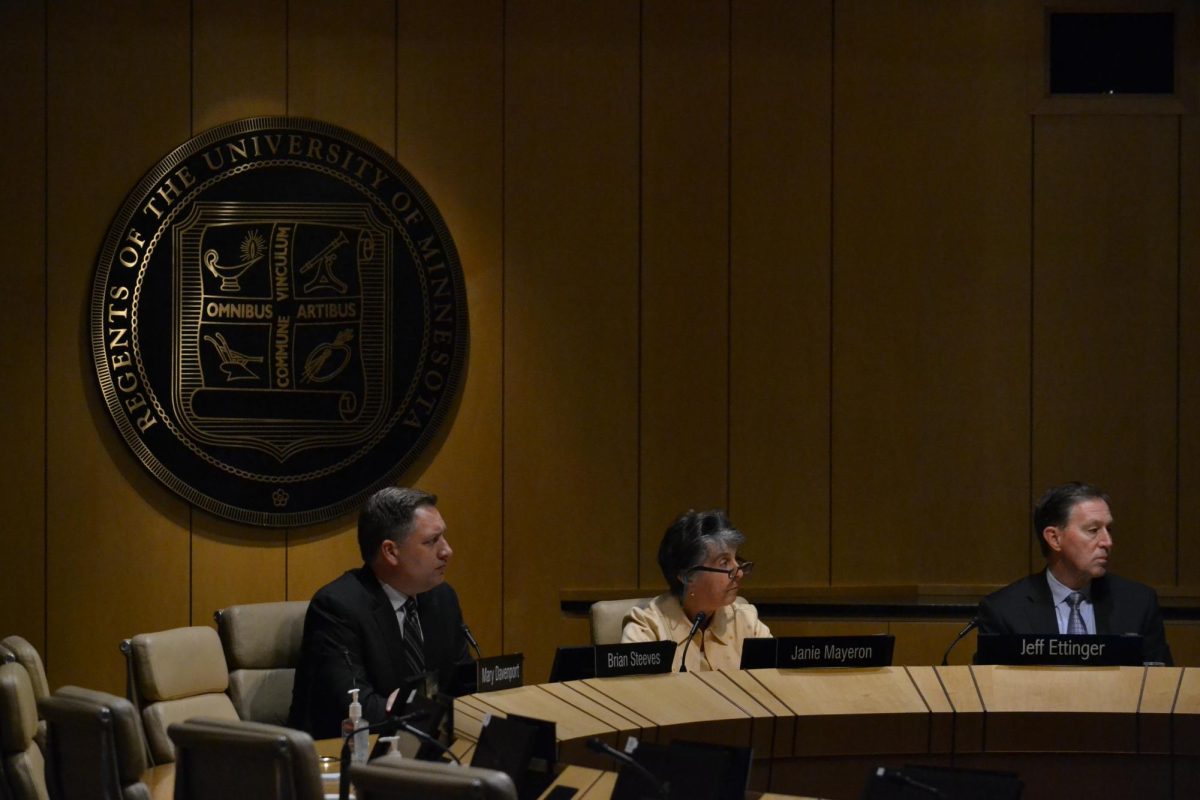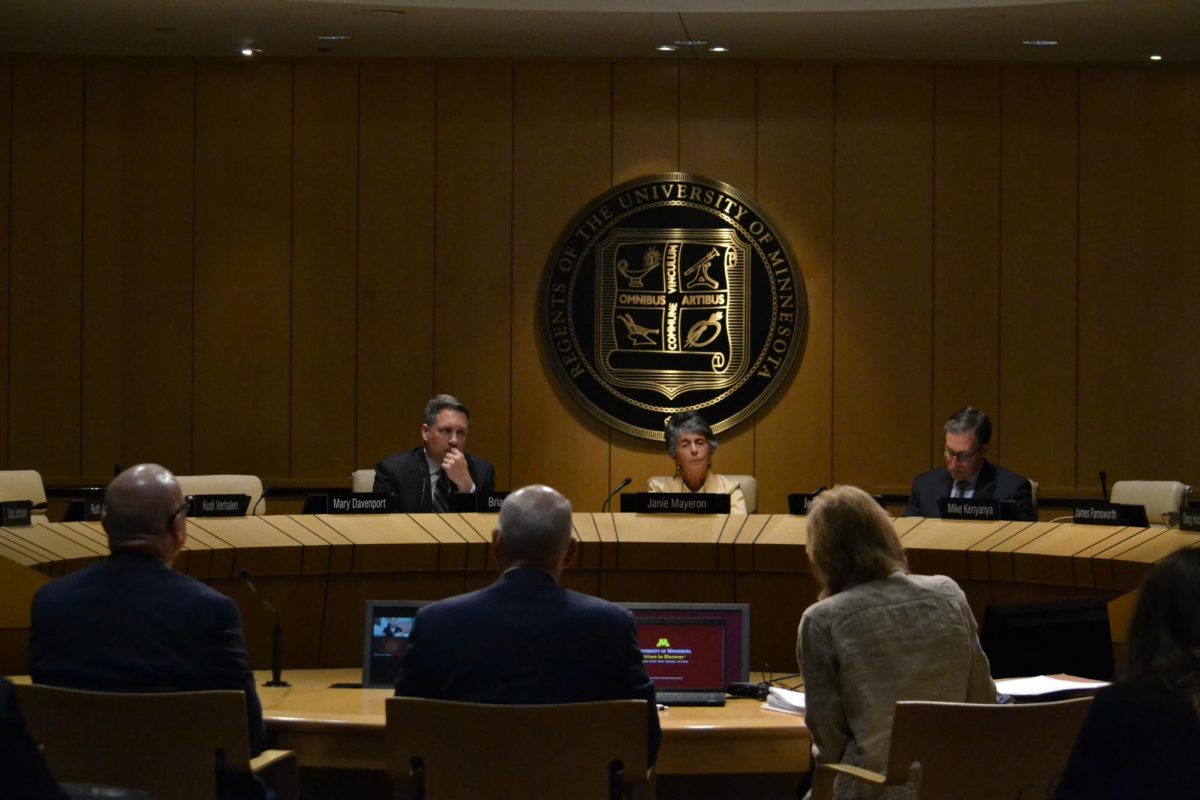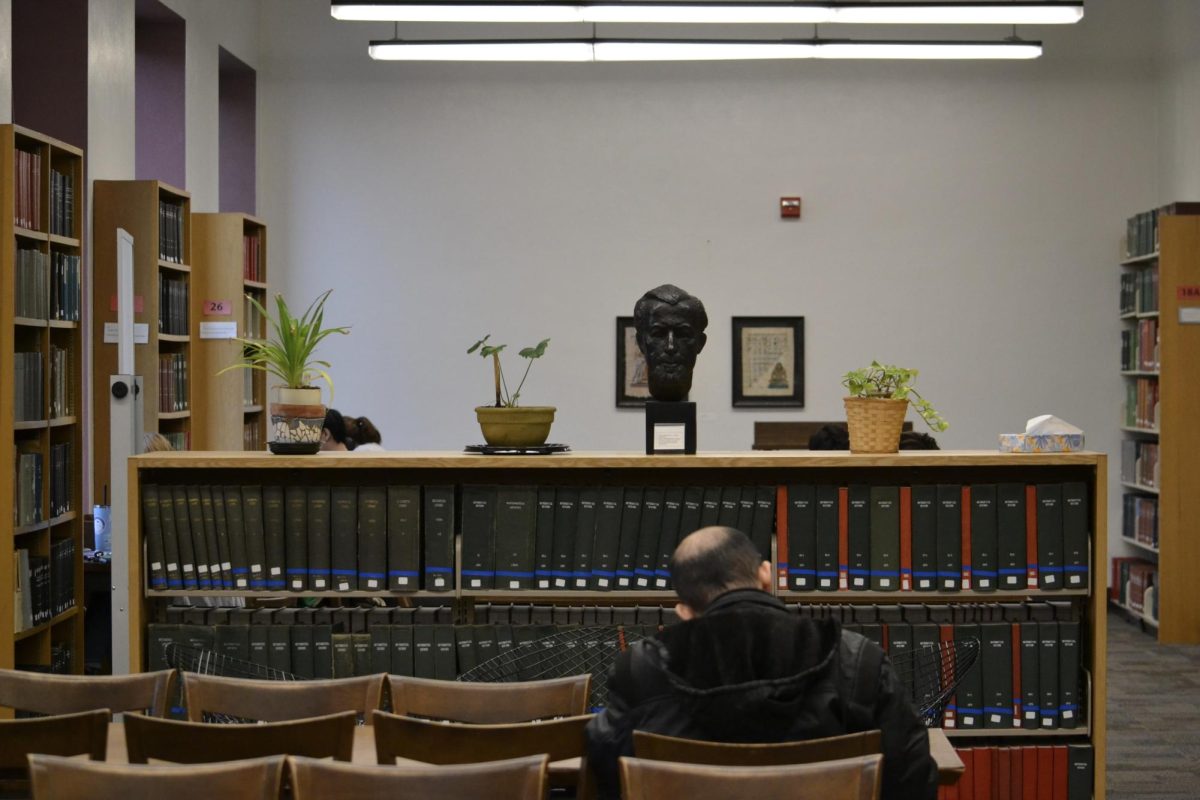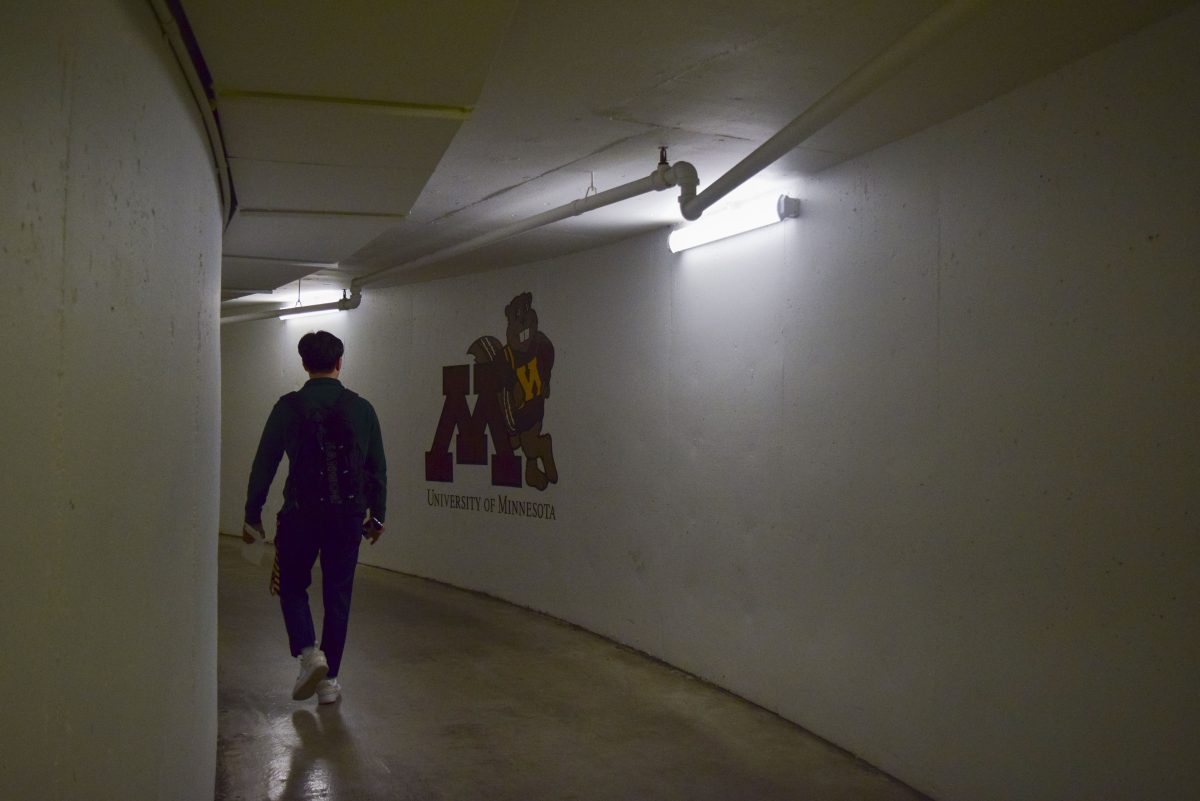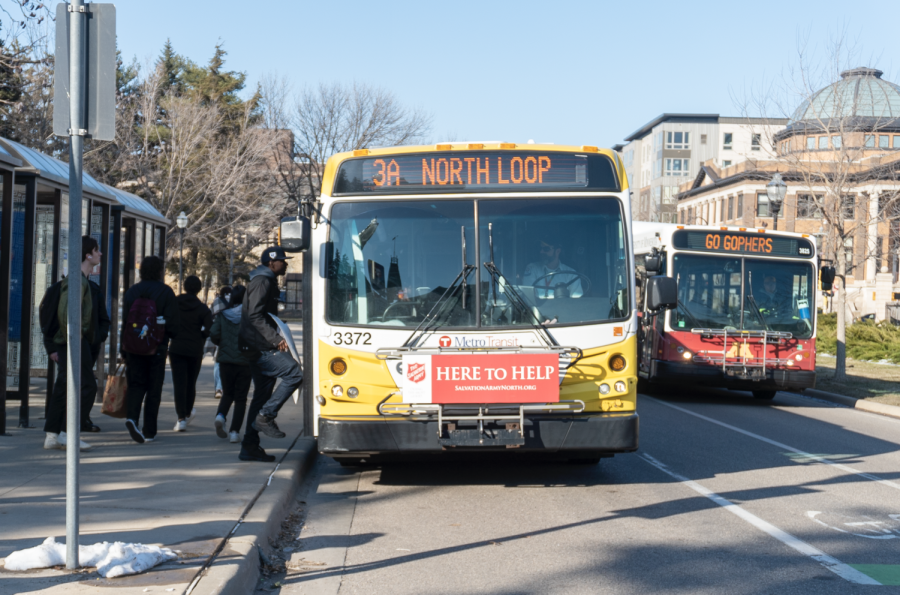The University of Minnesota Board of Regents discussed updates on lower tuition pricing strategies for the 2024-25 school year, MPact 2025 efforts and the President’s Initiative for Student Mental Health (PRISMH) on Thursday and Friday’s monthly meetings.
American Federation of State, County and Municipal Employees (AFSCME) members protested against budget cuts at the Board meeting.
Regents review tuition pricing strategies
The Minnesota Senate sent a bill to Governor Tim Walz on May 10 which will provide free tuition across all public state colleges and universities to families that make $80,000 or less annually.
The University offers several promise programs which provide need-based aid to students that make tuition affordable and education accessible, according to Provost Rachel Croson at the meeting.
The University is focused on keeping student debt below the national average by at least $2,500, Croson said.
Three pilot programs are being implemented on the Crookston, Duluth and Morris campuses to curb low enrollment rates by making tuition more affordable.
“What we are proposing is a model that is dynamic, open and flexible,” Croson said.
At the Crookston campus, administration aims to explore new tuition models for online degrees for the 2023-24 academic year which will provide flexibility to decouple tuition levels.
Most online students are part-time, which leaves them limited opportunities for financial aid, Mary Holz-Clause, Crookston’s chancellor, said.
“Only one-fifth of our online students qualify for federal and state scholarship assistance,” Holz-Clause said.
Duluth will provide full in-state tuition to Midwest states that left the Midwest Exchange Student Program (MESP) beginning Fall 2023. MESP offers discounted tuition rates for students at colleges and universities across the Midwest.
Summer scholarships will be provided at the Morris campus to support enrollment, retention and promote participation in three-year degree options starting summer 2024.
According to Morris’s chancellor, Janet Schrunk Ericksen, 91% of first-year students who earn at least 30 credits or before the start of their second year will return, while only 46% of students who earn fewer than 30 credits in the same time span do.
These pilots will be run for two to three years, then the success of these programs will be evaluated. They will be incorporated into the tuition component of the budget review process for fiscal year 2024 and 2025.
AFSCME protests ethnic and gender studies budget cuts
Staff and students represented by AFSCME protested on Thursday the $2 million budget cuts and the appointment of Jeff Ettinger as interim president.
They called for the pause of the Position for Excellence, Alignment and Knowledge (PEAK) initiative which will restructure staff positions in ways that will lower the quality of services and result in staff layoffs, according to Cherrene Horazuk, the President of AFSCME.
According to Ken Hortsman, the vice president for human resources, PEAK aims to decentralize the administration process for human resources and operations, create equitable and inclusive career development opportunities and leverage resources for the greater good while delivering services in a timely, accurate and compliant manner.
“The administration has not provided any details about the PEAK’s implementation, which does not inspire much confidence from those who will be affected by it,” Horazuk said.
Students, staff and faculty also demanded the University fully fund the College of Liberal Arts, upset about recent controversy regarding the ethnic and gender studies programs’ finances. The cuts came as a part of a broader $2 million cut for CLA’s teaching assistants and other unassigned teaching resources — like independent study advisers and workshops — across all the whole college.
Protesters criticized the Board for appointing Jeff Ettinger as the University’s interim president, expressing their concern for Ettinger’s lack of experience in academics and saying it could cause departments and programs to remain underfunded, while administrators continue receiving raises.
The groups who organized the rally are calling on the University to cut administrative costs. Cal Mergendahl of the graduate labor union (GLU) said, “This isn’t a budget crisis, it’s a distribution crisis.”
After the rally, students interrupted the Board meeting to voice their concerns about the University’s financial operations.
One student said they don’t want to pay $14,000 at a school where they can’t even pay her teachers. They said it was morally corrupt to cut funding for already underfunded programs and to have service workers fight administration for liveable wages.
Another student called out President Joan Gabel for sitting on her phone while they were speaking to the Board.
The protest was removed from the livestream and replaced with the Board of Regents symbol. These students were threatened with arrest by a police officer in the building for disrupting the meeting.
After the students left the boardroom, Co-Vice Chair Regent Douglas Huebsch continued the meeting discussing current docket items without addressing the protest.
“I was pretty alarmed,” Regent Robyn Gulley said. “We should not be threatening to arrest them when they walk in to have a conversation with us.”
MPact 2025 updates on sustainability
Under MPact 2025, the University is collaborating with partners and researching new ways to create a sustainable future. MPact 2025 is a system-wide strategic plan to strengthen the University’s commitment to research, teaching and service.
Since 2008, emissions have decreased by 50%, from 600,000 metric tons to 300,000 metric tons, at the University, Shane Stennes, the chief sustainability officer, said.
The University is integrating sustainability into learning experiences, research opportunities and addressing inequality in communities vulnerable to climate change and fostering critical partnerships.
“We are the hub that connects the private sector … and civil society,” Stennes said.
A next-generation systemwide Climate Action Plan has been established, identifying how the University can respond to the climate crisis with available resources, Stennes said.
Dr. Heidi Roop, director of University climate adaptation partnership, said 80% of Minnesotans think higher education institutions are responsible for developing and researching solutions.
The global temperature has warmed by two degrees Fahrenheit. Minnesota is warming at a rate of three degrees per year, Roop said.
According to Roop, the number of days per year over 90 degrees have increased, the growing season has extended by two weeks and a 13% increase in heavy rainfall has caused severe disruptions and flood risks.
Minnesota is transitioning from wet to dry extremes more quickly and more frequently, Roop said.
Roop said the fiscal risk of climate change is immense, reducing the United States’ GDP from three to 10% by the end of the century.
Climate risk management requires two things: prevention and preparation, Roop said. Investments and action in adaptations and mitigation will mitigate severe impacts of climate change, according to Roop.
“Any further day in … action on adaptation and mitigation will miss a brief and rapidly closing window of opportunity to secure a liveable and sustainable future,” Roop said.
PRISMH services and communications projects and proposals
The regents also discussed PRISMH, a task force addressing and supporting student mental health and aims to create a community of care.
The task force key areas of focus are prevention, research, services and treatment and communications.
Through a partnership with Masonic Institute for the Developing Board, two studies were selected to research root causes and intervention for student mental health. Dr. Ip’s Adolescent Brain Cognitive Development study focuses on the role of structural racism in adolescent mental health and Dr. Cullen’s Imagination Studio concentrates on reducing symptoms of depression in college students.
PRISMH has launched training and strategic collaborations to transform the learning environment for student mental health, most notably through the Quality Initiative Proposal approved by the Higher Learning Commission.
“The proposal,” Tabitha Grier-Reed, PRISMH’s co-chair said, “really helps to institutionalize the work of PRISMH in ways that will extend beyond our three-year sunset.”
The University provides many quick access, on-demand services to students, Maggie Towle, senior vice president for student affairs, said.
Boynton provides psychiatric care and medication management alongside student counseling services. Embedded counseling in departments is being expanded each year, Towle said.
PRISMH plans to expand communications by creating a centralized mental health portal that has all mental health and well-being resources available and accessible for students, Towle said.
Additionally, PRISMH is looking to expand services and treatment through a system wide Tele-Mental Health network of therapists and psychiatric nurses and the launch of the Mental Health Advocates Initiative at the Morris campus.
Next year, PRISMH will transition to the Office for Student Affairs, Towle said.
“Every conversation about student mental health seems to be buttressed by ‘What about faculty and staff mental health?’” Greer-Reed said. “That is, I think, a next chapter.”
Clarification: An original version of the article was unclear on the nature of CLA’s cuts. This version clarifies precisely what was cut, as well as what groups and individuals were protesting.
Correction: This article’s original version misspelled two individuals’ names. They have been corrected.












